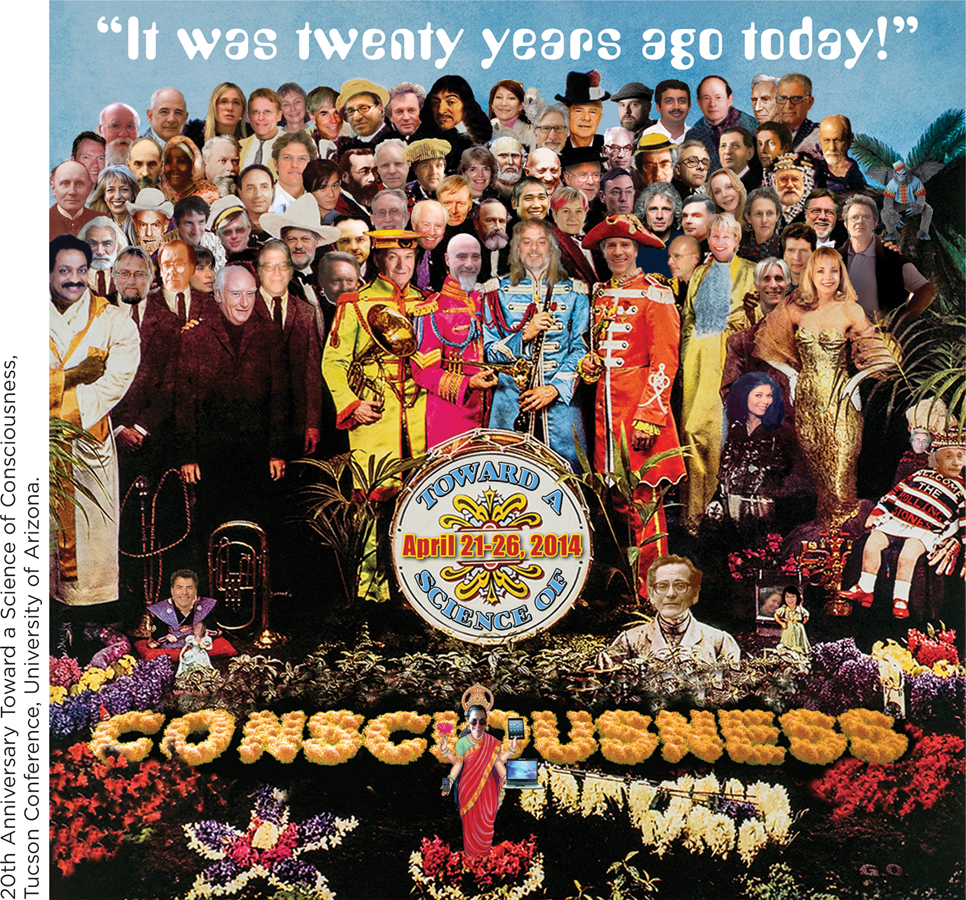9.1 Consciousness Studies in the History of Psychology
Preview Question
Question
 What could have made consciousness an “unmentionable topic” by the 1980s?
What could have made consciousness an “unmentionable topic” by the 1980s?

The history of psychological studies of consciousness is long and somewhat odd. At the outset of scientific psychology, it was the field’s #1 topic. Wilhelm Wundt and his associates, in psychology’s first laboratory, studied the flow of thoughts and feelings that make up a person’s conscious experiences (Blumenthal, 2001; see Chapter 1). Three decades of research culminated in the publication of the book Experimental Analysis of the Phenomena of Consciousness, by Wundt’s main laboratory assistant (Wirth, 1908).
Wundt’s efforts placed consciousness in the forefront of psychological science. Researchers in Europe and the United States explored the structure of conscious experience and the functions that consciousness serves. By 1911, a textbook writer could proclaim that “the generally accepted first problem in psychology is to determine the character of consciousness as we immediately experience it” (Pillsbury, 1911, p. 60).
But soon thereafter, everything changed. A school of thought known as behaviorism (see Chapter 7) contended that consciousness studies should be jettisoned from psychological science. The behaviorist argument was simple and, to many, compelling: Science progresses through careful observation and measurement; conscious states cannot be directly observed and measured; consciousness, therefore, cannot be a topic for scientific investigation in psychology. “The time seems to have come,” a leading behaviorist declared in 1913, “when psychology must discard all reference to consciousness” (Watson, 1913/1994, p. 249).
In the early 1960s, psychology saw the emergence of a new school of thought. Researchers asserted that thinking processes—
Thanks substantially to behaviorism and the computer metaphor, consciousness studies essentially dried up for three-
363
But then things changed dramatically again. In the past quarter-
WHAT DO YOU KNOW?…
Question 1
True or False?
- HyaB7KT2seN/MmE8Prkvo+DM+VBf2ikaRUbPqarNmF/b1UUSMZdlynireZYr+IITaZ+uoZfjTPuE3/9/5UhVs+O9rfUOuNSUooladN84FC+6k8Ban/lWs9MRdUnAir6fPQdvc3ZTzTDuDH0ukAz/H7LU9qU1WGSBIpCNxYGfzn1GrEm5+lPZqk7+fY0dI1nccZGr1ZfPdDdVS6PiAKRvnazj/o6QYylMZ0A3fBmGTWncGvdfvuGuJPORjstcmGvKl0zKr96Ge5ZbuxR7NhysQXkaXfM513ITB8CGyQ==
- muI58RfEgU46DAsjee6GXL/FwidyBGHnha3o3KOVzTdcRO220NX7dYR5sFhfmaNDE1rxSieYa9L+lAiQoRk3rTwOFFF3kvTX5LCAze0fcIliAScHD2bq04KhrePcsTeetre+GwjE2I7RNVZz3d4AsUebjAMDdSNOkpSdmMonCEIlzSmLSAwDIEs8a7cgePAlpJf8fCYqO/jo2aGHDV9mAXGcT4eKilgwNQckV2elXUhOYXA62JeQW++sXgtODrzqNdNZwDKtvTsk2VkzXsDCnm65LIE8n7ycLA3CoKcLfzh/CQan